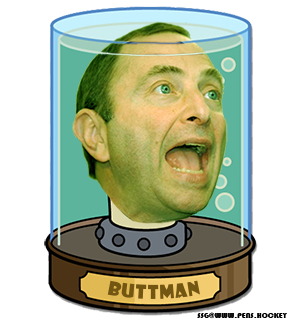Dateline: April 29, 2071.
Three weeks have passed since the conclusion of the Stanley Cup Finals, in which the Vegas Golden Knights captured their record-breaking sixth consecutive Cup and twentieth all-time. The ongoing climate crisis has led to the relocation of several franchises as rising sea levels have inundated many major coastal cities, forcing both teams and fans to migrate inland. The increasing temperatures also led to the gradual shift of the League’s schedule, as even mid-April temperatures and dew points in many of the League’s cities have made conditions untenable for maintaining quality ice. This relocation affected Vegas’ opponent in the Cup Final, the Tallahassee Panthers, which had just the year before finally succumbed to pressure to relocate once the Panthers former arena in Sunrise became regularly flooded with water. (Vegas, while in an increasingly hot part of the United States, is already very dry and can manage to keep its ice in better condition than its Canadian counterparts in Toronto, Edmonton, or even Calgary.)
The League’s Competition Committee, for the fiftieth-straight season, will petition the League’s Board of Governors to pressure the League’s officials to call penalties more regularly. The Committee is hoping their pleas will carry extra weight in the wake of a championship final that saw a record nineteen spectators die from boredom as each of the seven games in the series ended with a 1-0 score. All of deceased spectators were octogenarian Millennials who in the earlier part of the century had grown up watching the League in hopes that the stifling of the speed and creativity in lieu of oppressive defensive schemes would eventually catch up with the League, but with each game mired in a neutral zone slog and requiring multiple overtimes before either team could register decent enough scoring chances, the older fans started falling asleep, losing track of their heart medications, and ultimately succumbing to their illnesses.

The hope is once again likely in vain, however, as the NHL Officials’ Association has more power now than at any time in its over 100 years of existence. The head of the NHLOA is none other than Wes McCauley, who at 98 years old is and has for decades been the oldest referee in NHL history. Much of McCauley’s longevity can be attributed to years pioneering the burgeoning field of cybernetics, bionics, and nanotechnology. Numerous surgeries have made McCauley more machine than human, and as a result he has outlived the typical longevity of anyone who ice skates. A slapshot to the throat during the 2039-40 season, considered by some to be intentional, destroyed McCauley’s vocal chords, but the sport was shocked when the referee returned to action weeks later with a vocal chord implant that also had a built-in microphone, allowing McCauley’s normally booming voice to be even more effective, and causing several people to go deaf when the official would announce fighting majors.
Worse than anything else though is the influence McCauley’s decades of being a veteran official has put on the League’s power structure. Several players have gone missing as a result of arguing McCauley’s calls, or lack thereof, and investigations by the League and law enforcement have been fruitless. For many decades players and fans have fought and died trying to wrest control of the officiating away from McCauley, but to date they have largely fallen on deaf ears (in many cases, literally). Compounding the problem is the long-time commissioner of the NHL, Gary Bettman. Yes, Mr. Bettman maintains his leadership over the NHL, having long since placed his head in a jar, rendering the effects of aging moot. He and McCauley have joined forces to maintain control over the League for decades, allowing only marginal changes in the rules but nothing of substance to allow for the sort of offense-encouraging hockey that the aforementioned Millennials were literally dying for.

